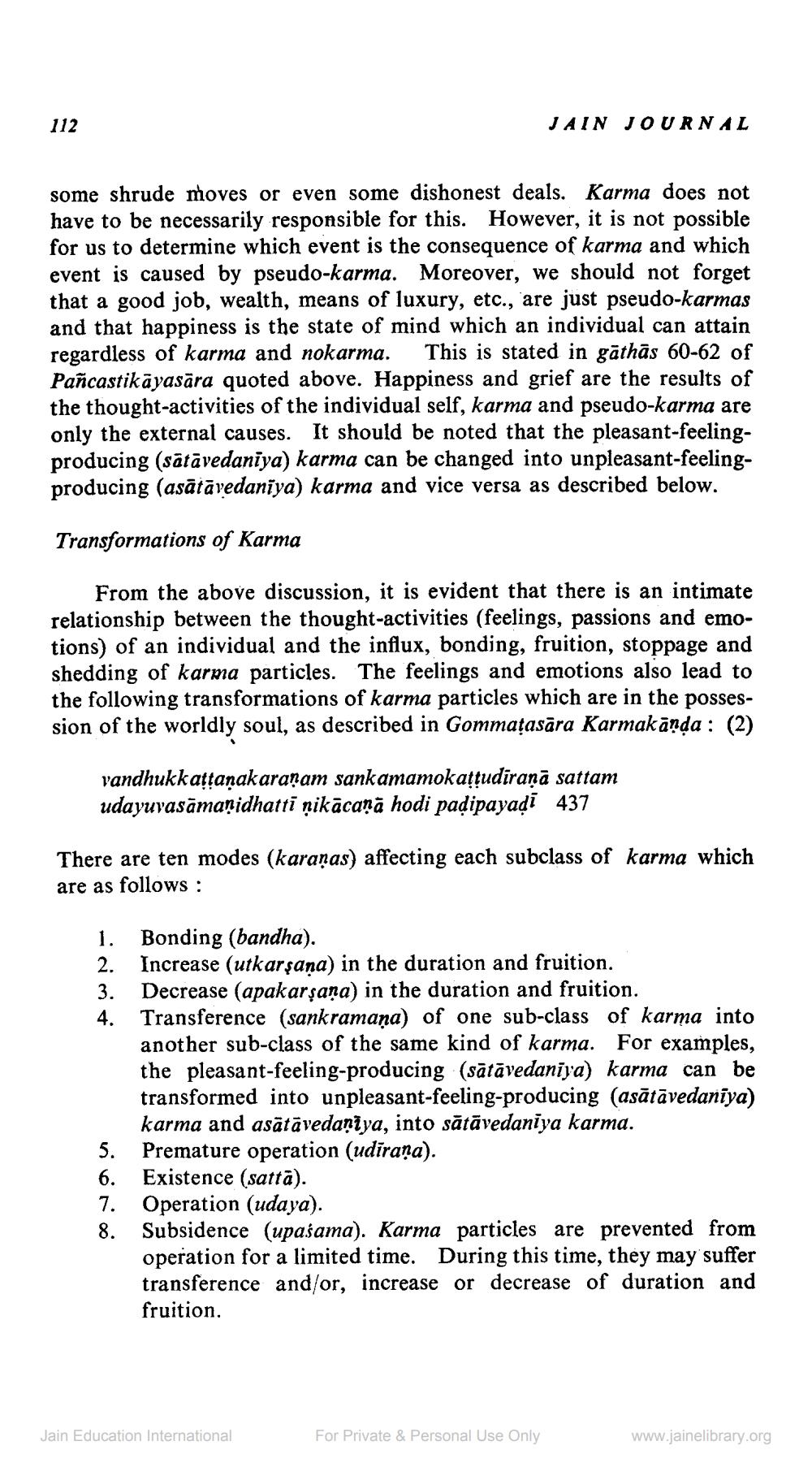________________
112
JAIN JOURNAL
some shrude moves or even some dishonest deals. Karma does not have to be necessarily responsible for this. However, it is not possible for us to determine which event is the consequence of karma and which event is caused by pseudo-karma. Moreover, we should not forget that a good job, wealth, means of luxury, etc., are just pseudo-karmas and that happiness is the state of mind which an individual can attain regardless of karma and nokarma. This is stated in gāthās 60-62 of Pañcastikāyasāra quoted above. Happiness and grief are the results of the thought-activities of the individual self, karma and pseudo-karma are only the external causes. It should be noted that the pleasant-feelingproducing (sātāvedaniya) karma can be changed into unpleasant-feelingproducing (asātāvedanīya) karma and vice versa as described b
Transformations of Karma
From the above discussion, it is evident that there is an intimate relationship between the thought-activities (feelings, passions and emotions) of an individual and the influx, bonding, fruition, stoppage and shedding of karma particles. The feelings and emotions also lead to the following transformations of karma particles which are in the possession of the worldly soul, as described in Gommațasāra Karmakānda : (2)
vandhukkattanakaraṇam sankamamokattudiraņā sattam udayuvasāmanidhattī ņikācaņā hodi padipayadi 437
There are ten modes (karanas) affecting each subclass of karma which are as follows:
1. Bonding (bandha). 2. Increase (utkarşana) in the duration and fruition. 3. Decrease (apakarşana) in the duration and fruition.
Transference (sankramana) of one sub-class of karma into another sub-class of the same kind of karma. For examples, the pleasant-feeling-producing (sātāvedaniya) karma can be transformed into unpleasant-feeling-producing (asātāvedaniya)
karma and asātāvedaniya, into sātāvedaniya karma. 5. Premature operation (udirana).
Existence (sattā). 7. Operation (udaya).
Subsidence (upasama). Karma particles are prevented from operation for a limited time. During this time, they may suffer transference and/or, increase or decrease of duration and fruition.
Jain Education International
For Private & Personal Use Only
www.jainelibrary.org




